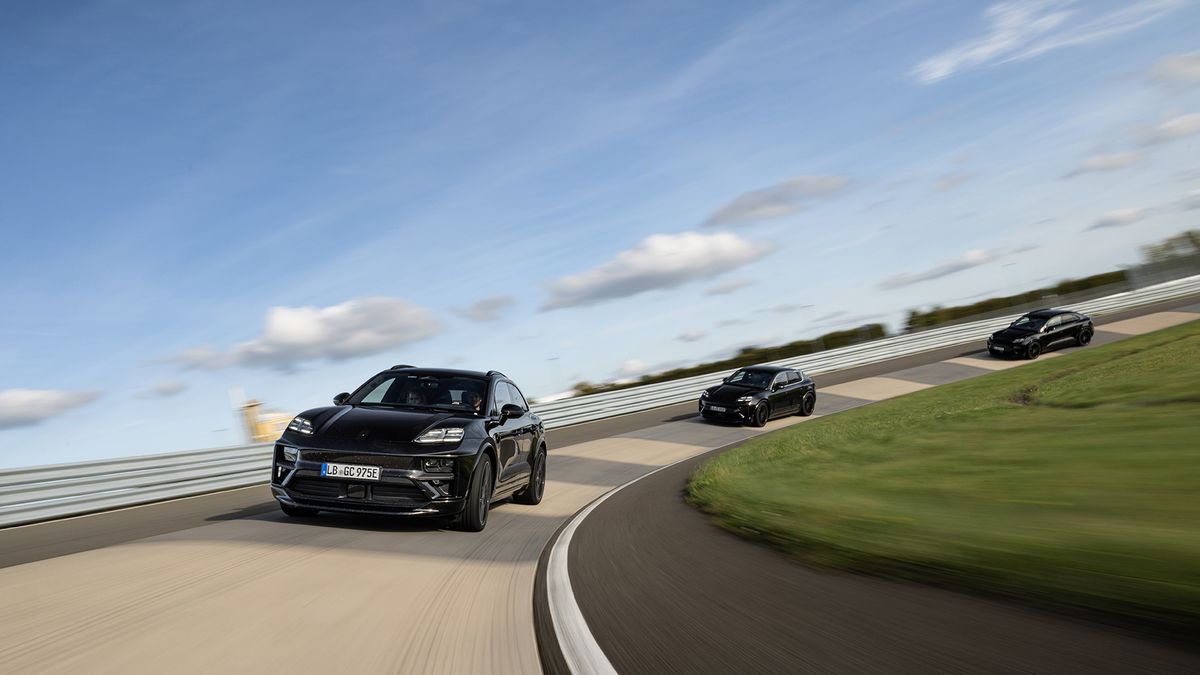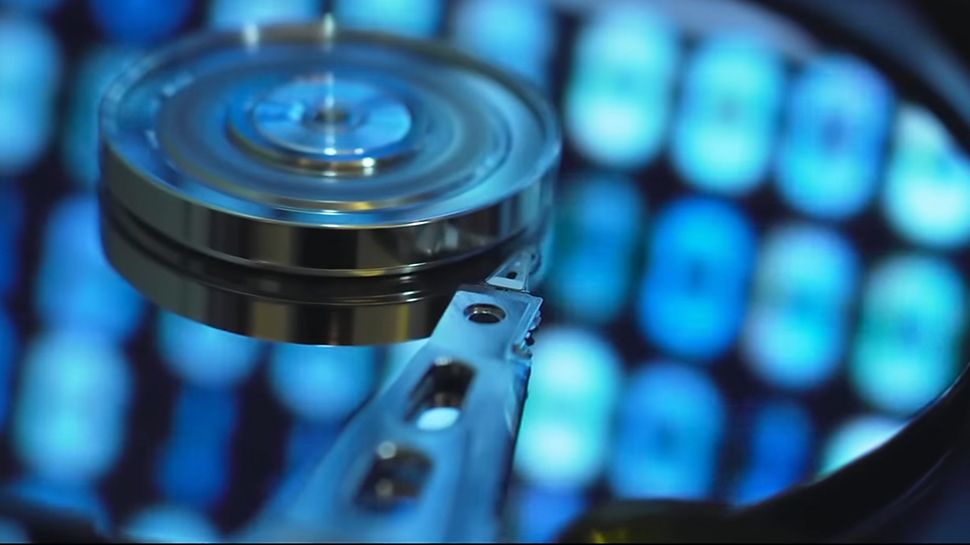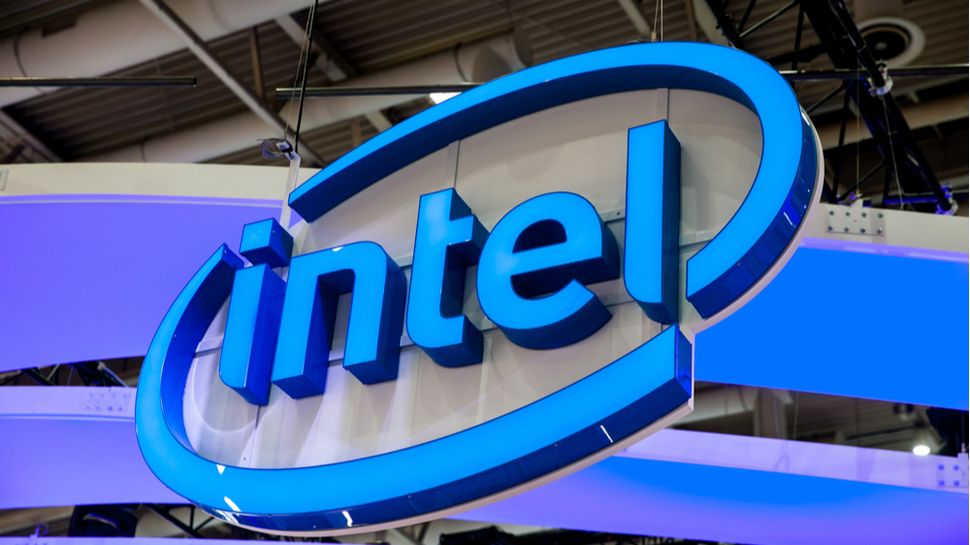I was among a handful of journalists who Porsche recently invited to its production plant in Leipzig, Germany, to poke around the new Panamera and get a taste for what what we can expect from its upcoming Macan – the first of its kind to be offered in EV guise only.
Although only revealed on the day in heavily-disguised, prototype form, we learnt that this powerful, high-performance electric SUV will be underpinned by the latest Premium Platform Electric architecture (developed jointly with Audi), is powered by permanently excited synchronous electric motors (PSM) and features 800-volt technology for fast charging.
All models will receive lithium-ion batteries in the underbody with a total capacity of around 100 kWh, while the spiciest Macan EVs will develop some 450 kW (603bhp in old money) and more than 1,000 Nm of torque.
Ignore the distinct lack of rasping engine note for a moment, and trust me when I say it’s going to be ludicrously fast, ludicrously capable off-road and embody everything that Porsche stands for when it comes to handling and performance. The racing driver that rearranged my internal organs on Porsche’s test track confirmed all that.
But it is inside the new Macan that some of the biggest – and arguably the most unsung changes have occurred.
Ultra-fast underpinnings
Like the upcoming Panamera and Taycan, the Macan EV will get a 12.6-inch, fully digital and free-standing curved display that takes care of important vehicle information. Next to this is a full HD, 10.9-inch touch display for infotainment and the option to allow the front passenger to enjoy an additional 10.9-inch touchscreen.
Thanks to a special film that overs said display, it is possible for the front occupant to binge on boxsets and update social channels without distracting the driver.
“The biggest change for us is just how fast this new system is to respond,” Miriam Mohamad, Project Manager Digital for Macan, told me during the event.
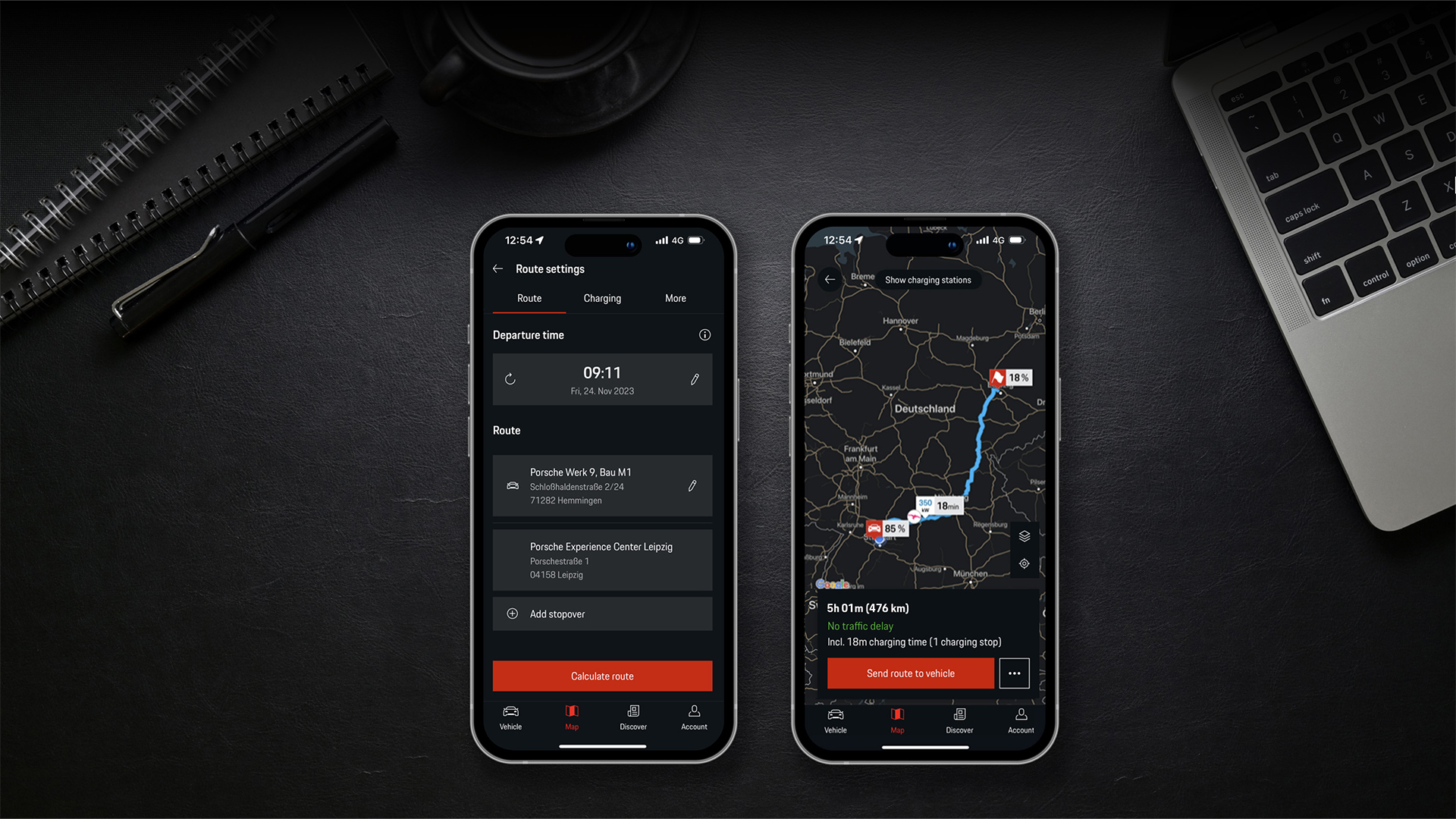
“The entire system is underpinned by new Qualcomm processors, which allows the system to respond rapidly, while we have greatly improved the effectiveness of our voice assistant,” she adds.
This was neatly demonstrated when Mohamad had her colleague Joan Pieper begin chatting in the background, while she delivered a bunch of “Hey Porsche” voice commands.
Not only was the new dual microphone system capable of determining who is barking the important instructions, visually displaying the seat recognition on the central screen and indicating interaction via 56 twinkling LEDs running across the instrument panel, it also dealt with those instructions quickly.
“The voice assistant can now cope with more conversational language and can handle more specific requests, like finding a charging outlet from a particular supplier,” Mohamad adds.
What’s more, this new fast-paced system was called into action when calculating complex theoretical routes across Europe, factoring in multiple charging stops on the way. Even the longest journeys took just a few seconds to process and display, with the ability to quickly send pre-programmed routes from Porsche’s smartphone app when not in the car.
Android ups the ante
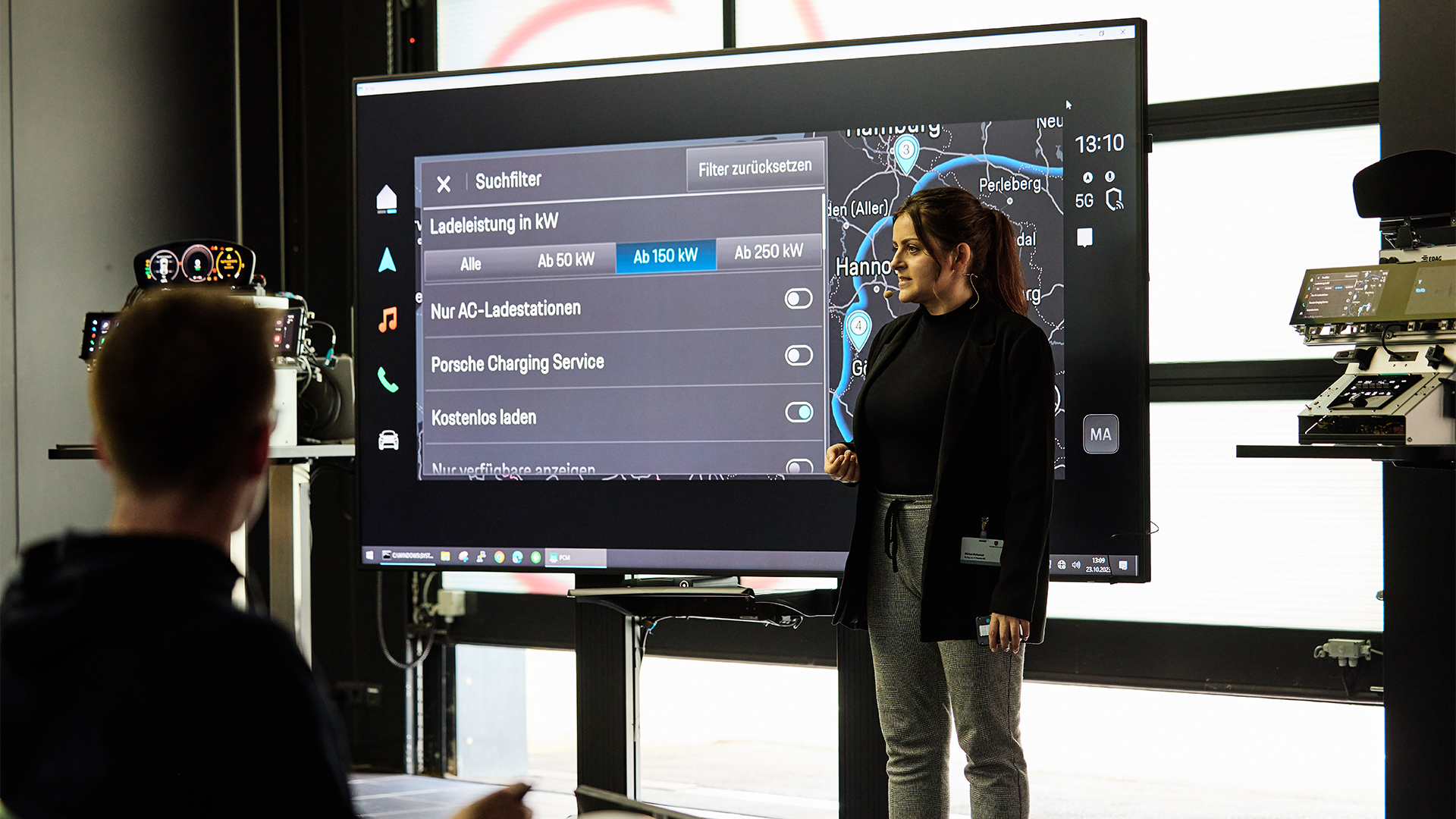
Porsche has turned to Android Automotive to provide the operating system that powers its latest infotainment offering, and this opens up the ability for owners to make use of an extensive app store, rather than rely on something Porsche has developed and curated.
The system is equally fast, booting up in the background as soon as the driver approaches with the key, meaning it is ready to use almost instantaneously. A new Porsche App Centre is there to keep the vehicle updated over the air, but also offer a comprehensive list of entertainment options.
Similar to the offering found in a Tesla, Porsche owners can play Beach Buggy Racing, stream from platforms like YouTube and DAZN, as well as enjoy multiple music and podcast streaming apps either from the main infotainment screen, or via the optional passenger display.
On top of this, Cisco WebEx can be harnessed for joining conference calls. Miriam Mohamad confirmed that it is just voice calls for the moment, but Porsche is looking into the viability of adding a camera so users can join video calls when the vehicle is parked.
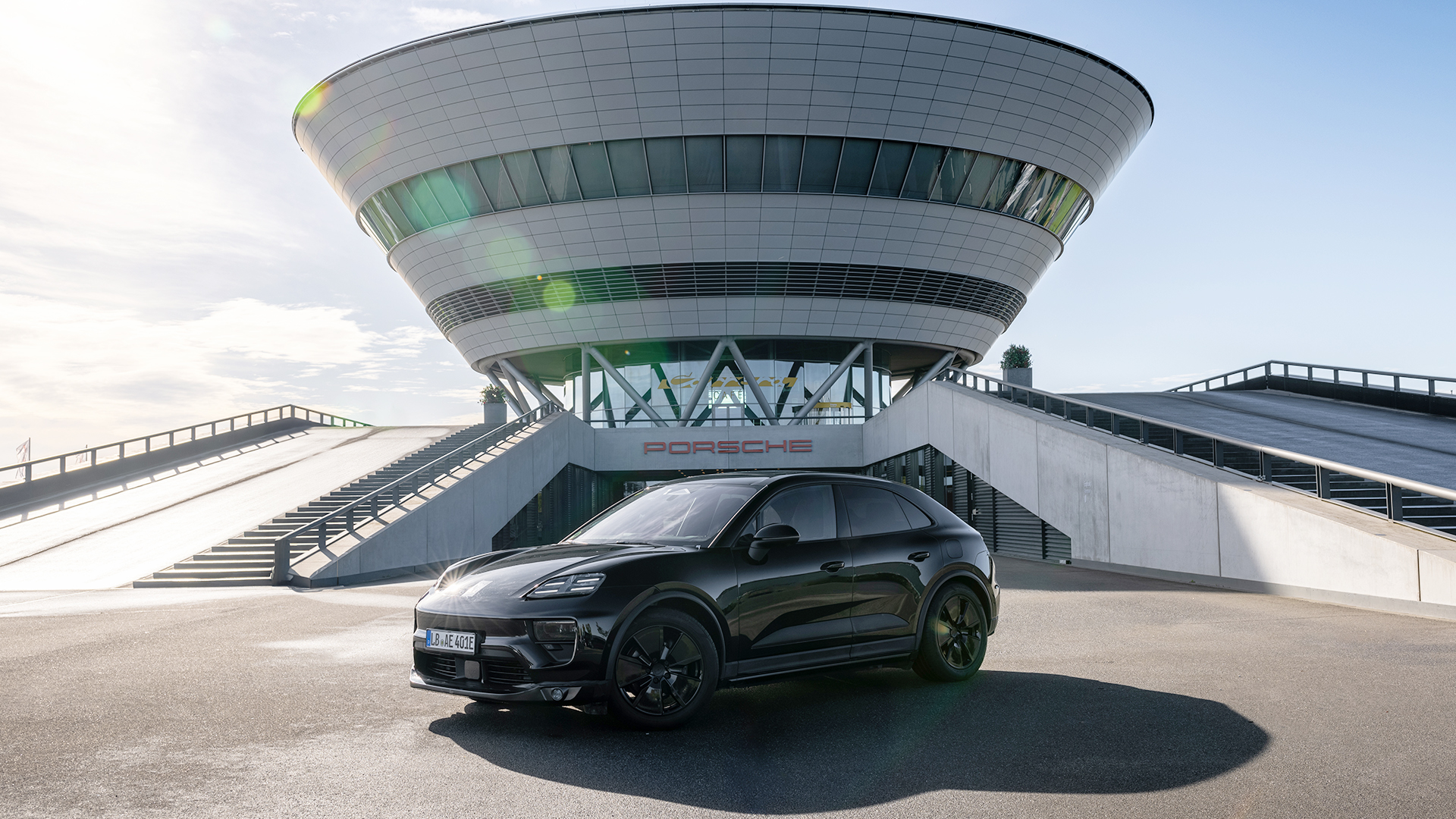
When quizzed about the apps available, Mohamad stated that these would be limited to those approved for use by the Android Automotive OS (not to be confused with Android Auto) platform in the Google Play Store, but Porsche won’t be curating the list, opening up a much wider remit of possibilities for entertainment and tools on the move.
But in order to ensure the system remains fast and accurate, even if the owner goes wild with app downloads, Mohamad said that Porsche’s software engineers built-in a method that sees unused apps automatically shut down, rather than running in the background and risking slowing down the entire set-up.
iPhones and Augmented Reality
We reported earlier this year that Porsche was one of the only manufacturers developing Apple CarPlay using the company’s Automaker toolkit, citing the fact that in-house research revealed the vast majority of Porsche buyers own an iPhone.
This theme will continue in Macan EV, with iOS users able to do more from within the Apple CarPlay ecosystem. Porsche says: “when using Apple CarPlay, Apple’s map is displayed in the instrument cluster, as is Google Maps in Android Auto”.
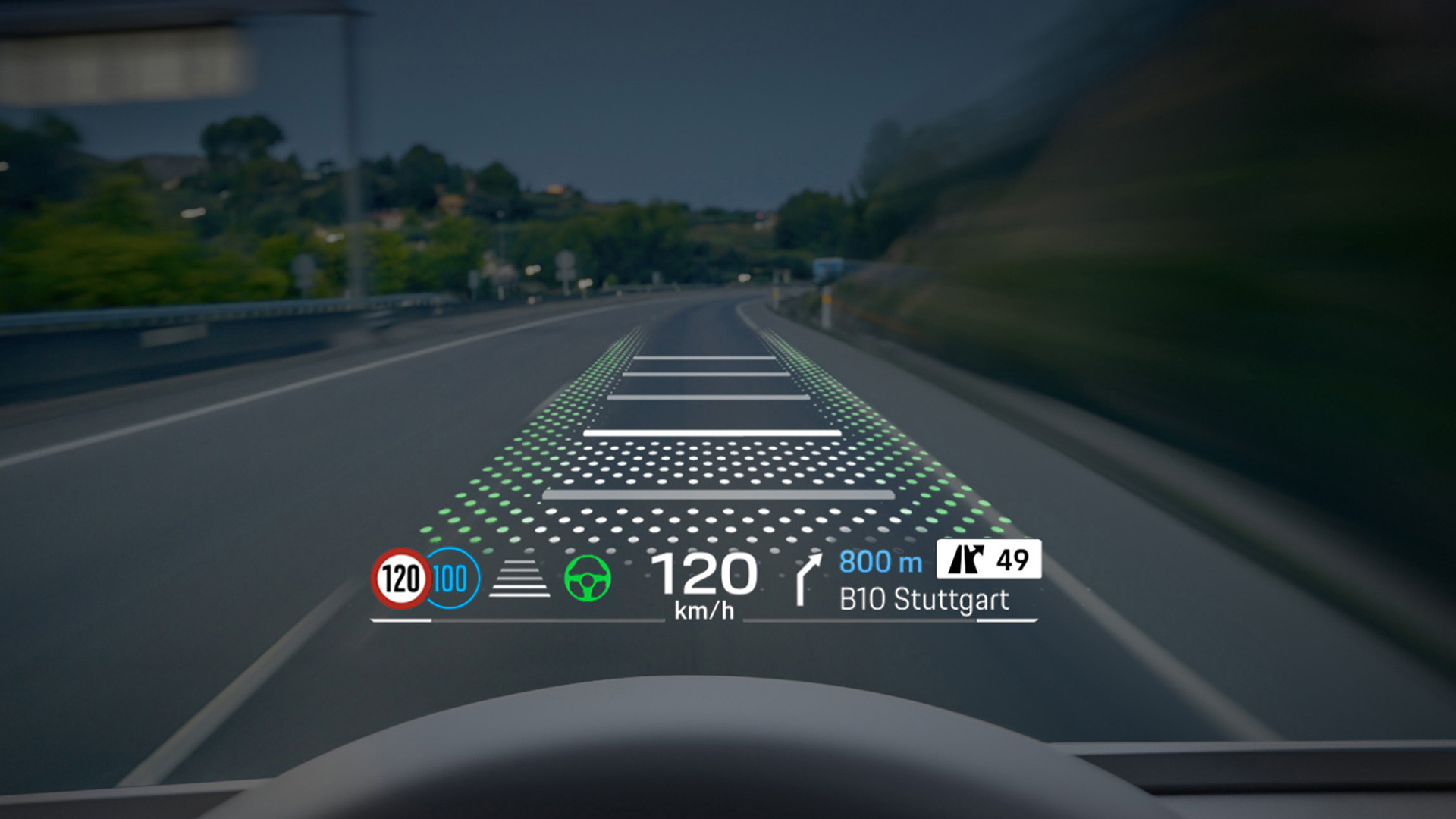
But that’s just the tip of the infotainment iceberg, as much of the vehicle’s functionality is able to be accessed from the CarPlay main menu, so drivers can adjust the radio or interact with the air conditioning without leaving the CarPlay screen.
It will sit beside Porsche’s own app offering, without the need to flick between the two systems… and this includes the ability to harness Siri, Google Assistant or Porsche’s own voice assistant.
If that isn’t enough digital real estate, Porsche will also sell potential customers an optional Head-Up Display unit that projects onto the windscreen in front of the driver. The company claims it appears at a distance of 10m and corresponds to the size of an 87-inch display, making it one of the largest currently offered in the market
But for the first time, this will use colored Augmented Reality content that blends into the real-world outside.
Porsche demoed a couple of scenarios where this would come into play, such as displaying turn arrows in the correct lane and adaptively showing the distance from the car ahead with red ‘carpet’ markers when using cruise control.
It draws information from the sat-nav system, as well as any environmental data and the position of the vehicle via numerous sensors to offer accurate AR depictions.


